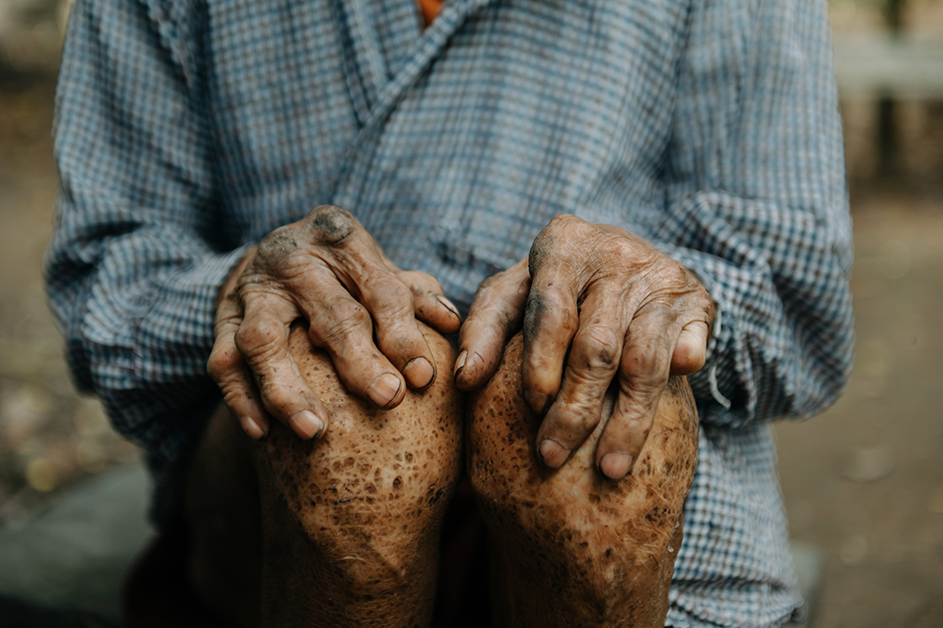You have no items in your shopping basket.
Rose Mabiza
12-03-2024
Rare Disease Day 2025
Image by vetre via Envato Elements
Take control: Recognising and managing Raynaud’s
Raynaud’s Awareness Month, which is observed every February, plays a crucial role in raising awareness about Raynaud’s phenomenon, a condition that affects blood circulation, particularly in the fingers and toes. This month, efforts are made to educate the public about the impact of Raynaud’s, which causes blood vessels to constrict in response to cold or stress, limiting blood flow and resulting in symptoms like numbness, tingling, and pain. This year’s theme, "Take Control: Recognising and Managing Raynaud’s", highlights the importance of early identification of symptoms, empowering individuals to take proactive steps in managing their condition. Individuals can significantly improve their quality of life by focusing on recognising warning signs early, adopting lifestyle changes such as avoiding cold triggers and stress and seeking timely medical care. This month also emphasises the importance of accessing effective treatments, from medication to supportive therapies, that can help prevent complications and improve daily functioning for those affected.
Understanding Rare Disease Day
Rare Disease Day was established in 2008 by EURORDIS-Rare Diseases Europe, a non-governmental alliance representing European patient organisations. The initiative has since expanded globally, with support from the National Organization for Rare Disorders (NORD) in the United States and advocacy groups worldwide. The campaign seeks to improve awareness among policymakers, healthcare professionals, researchers, and the general public to drive advancements in treatment, support, and policy development for rare diseases (EURORDIS, 2024).
What is a rare disease?
A rare disease is defined differently across countries, but in the European Union, it is classified as a condition affecting fewer than 1 in 2,000 people. Over 7,000 known rare diseases are collectively impacting millions of individuals worldwide (Genetic Alliance UK, 2024). Many of these diseases are genetic, chronic, and life-threatening, with limited treatment options available.
Key facts and statistics
- 1 in 17 people in the UK will be affected by a rare disease at some point in their lifetime (Genetic Alliance UK, 2024).
- More than 300 million people worldwide are living with a rare disease (Rare Disease Day, 2024).
- 72% of rare diseases are genetic, while others result from infections, allergies, or environmental factors (Rare Disease Day, 2024).
- 95% of rare diseases have no approved treatment (U.S. Government Accountability Office, 2024).
The importance of awareness and advocacy
Individuals living with rare diseases often face significant challenges, including misdiagnosis, lack of treatment options, and difficulties accessing appropriate care. Many patients experience long diagnostic journeys, sometimes waiting years before receiving an accurate diagnosis. This delay can have severe consequences, as early intervention and management are critical to improving outcomes and quality of life.
Raising awareness is crucial in influencing policy changes, driving research funding, and ensuring that healthcare systems are equipped to support rare disease patients. Advocating for better healthcare policies and increased research funding can lead to advancements in treatments, improved diagnostic tools, and greater accessibility to specialised care. Additionally, awareness campaigns empower patients and their families by providing knowledge about available resources, connecting them with support networks, and reducing feelings of isolation.
How can you support Rare Disease Day 2025?
- Educate yourself and others about rare diseases and their impact.
- Join the conversation by using hashtags like #RareDiseaseDay and #MoreThanYouCanImagine on social media.
- Support research initiatives by donating to rare disease organisations.
- Encourage workplaces to implement training on inclusivity and healthcare support for those living with rare conditions.
Conclusion
Rare Disease Day 2025 serves as a powerful reminder of the need for awareness, research, and support for individuals affected by rare conditions. By working together with patients, healthcare professionals, policymakers, and the public - we can foster inclusivity, drive medical advancements, and advocate for a future where rare diseases receive the attention they deserve.
At The Mandatory Training Group, we recognise the importance of education and training in supporting individuals with rare diseases. Our health and social care training courses provide essential knowledge to professionals on rare conditions, patient care, and advocacy. For organisations, ComplyPlus™ offers robust compliance solutions tailored to health and social care settings, ensuring that rare disease policies align with best practices and legislative requirements. Together, we are more than you can imagine.
Last updated on 21-02-25
About the author
Rose Mabiza
Rose has dedicated over 15 years to improving health and social care quality through practice, targeted education and training. Her extensive experience includes working with older adults, individuals with mental health conditions, and people with autism and learning disabilities.

Related blog articles
View allContact us
Complete the form below to start your ComplyPlusTM trial and transform your regulatory compliance solutions.







